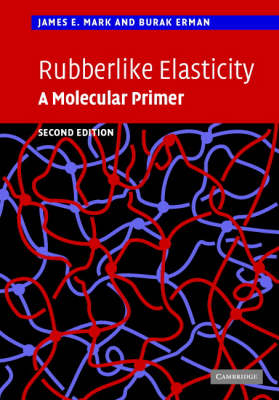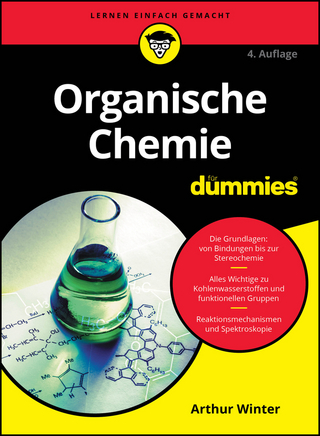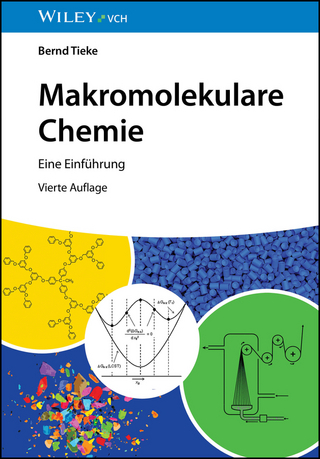
Rubberlike Elasticity
Cambridge University Press (Verlag)
978-0-521-81425-6 (ISBN)
Elastomers and rubberlike materials form a critical component in diverse applications that range from tyres to biomimetics and are used in chemical, biomedical, mechanical and electrical engineering. This updated and expanded edition provides an elementary introduction to the physical and molecular concepts governing elastic behaviour, with a particular focus on elastomers. The coverage of fundamental principles has been greatly extended and fully revised, with analogies to more familiar systems such as gases, producing an engaging approach to these phenomena. Dedicated chapters on novel uses of elastomers, covering bioelastomers, filled elastomers and liquid crystalline elastomers, illustrate the established and emerging applications at the forefront of physical science. With a list of experiments and demonstrations, problem sets and solutions, this is a self-contained introduction to the topic for graduate students, researchers and industrialists working in the applied fields of physics and chemistry, polymer science and engineering.
James E Mark is a Distinguished Research Professor for the department of Chemistry at the University of Cincinnati, Ohio. He has been a Visiting Professor at several institutions as well as having extensive research and consulting experience in industry. His current research interests pertain to the physical chemistry of polymers, including the elasticity of polymer networks, hybrid organic-inorganic composites, liquid-crystalline polymers, and a variety of computer simulations. A Fellow of the American Physical Society, he is also an editor of the journal Polymer. Amongst numerable achievements, he has been awarded the ACS Applied Polymer Science award and was also elected to the Inaugural Group of Fellows (ACS Division of Polymeric Materials Science and Engineering). Burak Erman is a Professor in the department of Chemical and Biological Engineering at Koc University in Istanbul, Turkey, where he has been since 2002. His research interests are focused on rubber elasticity; polymer and protein physics and engineering, both experiment and theory, including computer simulations. In 1984, he founded and became Director of the Polymer Research Center at Bogazici University, before moving in 1988 to the Sabanci University in Istanbul where he founded the Chemistry and Materials Science Program. In 1991, he received both the Simavi Science Award and the TUBITAK Science Award. He is founder and member of the Turkish Academy of Sciences.
Part A. Fundamentals: 1. Introduction; 2. Some rubberlike materials; 3. The single molecule: theory and experiment; 4. Preparation and structure of networks; 5. Elementary statistical theory for idealized networks; 6. Statistical theory for real networks; 7. Elastic equations of state and Force-Deformation relations; 8. Swelling of networks and volume phase transitions; 9. Force as a function of temperature; 10. Model elastomers; Part B. Additional Topics: 11. Networks prepared under unusual conditions; 12. Strain-induced crystallization and ultimate properties; 13. Multimodal networks; 14. Birefringence and segmental orientation; 15. Neutron scattering from networks; 16. Liquid crystalline elastomers; 17. Bioelastomers; 18. Filled elastomers; 19. Current problems and new directions; Appendixes: A. Relationships between I', ~, and Mc; B. Relationships between , <((d,)r2)>, 0, and t/>; C. Equations of state for miscellaneous deformations from the Constrained-Junction Theory; D. Thermodynamics of the relationship of stress to temperature; E. Questions and answers; F. Some publications describing laboratory/classroom experiments or demonstrations; References; Index.
| Erscheint lt. Verlag | 8.2.2007 |
|---|---|
| Zusatzinfo | Worked examples or Exercises; 21 Halftones, unspecified; 109 Line drawings, unspecified |
| Verlagsort | Cambridge |
| Sprache | englisch |
| Maße | 170 x 244 mm |
| Gewicht | 640 g |
| Themenwelt | Naturwissenschaften ► Chemie ► Organische Chemie |
| ISBN-10 | 0-521-81425-1 / 0521814251 |
| ISBN-13 | 978-0-521-81425-6 / 9780521814256 |
| Zustand | Neuware |
| Haben Sie eine Frage zum Produkt? |
aus dem Bereich


